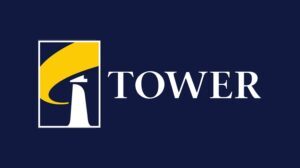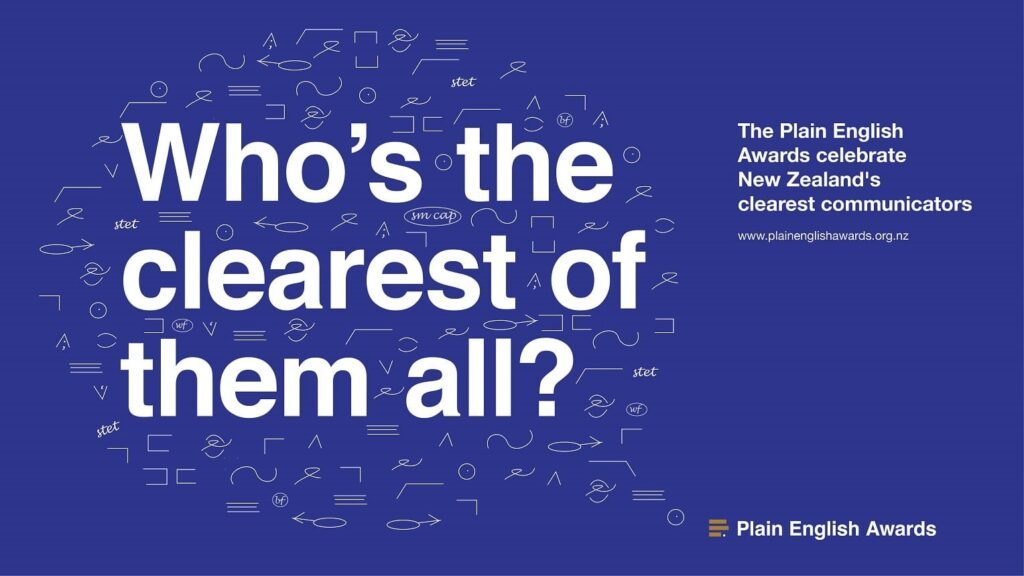WriteMark
Plain Language Standard
Help! My appurtenance is on fire!

Avoid adding fuel to the fire with complicated communication. Image by Little Visuals. Pexels license.
When something catastrophic happens at home, you need to act fast. Can you imagine trying to get help like this?
“I need to undertake a disclosure with you. I’ll give you the full particulars. A bodily injury has occurred directly or indirectly. And I’m worried about the remediation. Can I priority request you and your apparatus be utilised to assist with the contamination damage?”
These convoluted phrases pepper real insurance documents. But when people need to understand what’s covered and how to make a claim, they need clear, accurate information that’s easy to navigate.
We’re thrilled that more insurance companies are taking this seriously.
Some companies are working hard on their legalese, rewriting dense, internally focused policies, forms, and letters so they are easy to read, easy to understand, and written for the reader rather than the writer.
And each year a few more make the WriteMark® grade.

Congratulations to Tower for achieving the Write Mark and becoming a plain language champion! Image by Tower Insurance.
Tower Insurance is on a mission
Tower Insurance is one of the latest. Tower’s recent commercials proudly proclaim that they now have the WriteMark® on 14 home, contents, and vehicle policies. Their campaign dismantles difficult words and shows the difference straightforward language can make.
Words for work, or words for wonder?
Tower’s image of the word ‘appurtenance’ exploding symbolises their mission to simplify insurance.
And it had us scratching our heads.
Because, even though our WriteMark® assessors include authors, linguists, editors, teachers, and all-round word nerds, many of us didn’t know what ‘appurtenance’ meant.
These are people who send emails headed ‘Noun string of the day’, and can spend half an hour discussing the subtle difference between ‘moved home recently’ or ‘recently moved home’. They savour the richness, elegance, and (let’s be honest) perverseness of the English language.
We can all appreciate that ‘appurtenance’ is a lovely-sounding word with a fascinating etymology.
First known use of appurtenant
14th century
History and etymology for appurtenant
Middle English apertenant, from Anglo-French appurtenant, present participle of apurtenir to belong — more at ‘appertain’
History and etymology for appertain
Middle English apperteinen, from Anglo-French apurtenir, from Late Latin appertinēre, from Latin ad- + pertinēre to belong — more at ‘pertain’
But we’re also citizens and policy holders, who need to find our way through important information, often under stress. In times like these we want clarity, not a linguistic lift. We want information where writers have put the effort in to help us make decisions and take action.

There’s a time for tea and poetry and a time for getting the information you need. Image by Suzy Hazelwood. Pexels license.
Excellence for effort and an effort for excellence
We know it’s not straightforward, and companies that have reached the WriteMark® Standard for some documents deserve recognition for their courage and commitment. And once one or two documents have met the Standard, it’s very easy to spot those that still need work.
Congratulations to Tower!
But what does ‘appurtenance’ mean?
In home insurance, an appurtenance is a piece of property associated with the main dwelling. For example, it includes the garden and trees, and other structures on the property such as garages, decks, and swimming pools. It also includes items that are in some way part of the house, such as air-conditioning units, furnaces, and septic systems.
— many of which could catch on fire!
Anne-Marie Chisnall October 29th, 2019
Posted In: The WriteMark, WriteMark Holders
Tags: clear language, clear thinking, clear writing, improved writing, industry standards, plain language, power of plain language, Quality writing, Tower Insurance, writing for the public
Clarity is the heart of the matter

Long roads can read to beautiful destinations.
Australia’s Budget Direct Insurance is always looking for ways to set itself apart from the competition. In 2017 the company identified the opportunity to improve the overall customer experience, by creating the easiest-to-understand Home and Contents Product Disclosure Statement (PDS) in the marketplace.
After a highly worthwhile journey — that took a little longer than expected — the new PDS was published this week. And it became the world’s first document carrying the heart with a tick — not just the prestigious WriteMark®, but the ultimate WriteMark® Plus.
What is the WriteMark® Plus?
When a document or website holds the WriteMark®, customers know that the writing meets a very high standard of clarity. Experts have evaluated the writing against rigorous criteria, emphasising the needs of the audience. The WriteMark® Plus includes testing the document with the intended audience.
Each journey begins with a single step
By mid-2018, Budget Direct had spent 12 months gathering information about the challenge ahead:
- analysing PDSs available to consumers
- running workshops with the business
- analysing their current document
- considering potential regulatory reforms.
Struggling to find good examples to follow, they extended their search. They saw that Tower in New Zealand had won an award in the Plain Language Awards. They phoned us to ask who did our type of work in Australia. ‘We do,’ we told them. Two of our consultants travelled to Brisbane to talk about Budget Direct’s vision for the document and how we could help.
The road is long, and good things take time
The project involved a lot more than a simple rewrite. For the change to be permanent, Write and the project team at Budget Direct needed to bring the rest of the organisation along with them.
Legal and compliance teams had to be satisfied that the changes reduced risk rather than introducing it. Systems and processes had to change with the new content. Every piece of content needed to be tracked through each stage of writing, review, editing, and testing.
Fortunately, Budget Direct took the time they needed to deliver the best result.
Difficult roads often lead to beautiful destinations
After lots of hard work, the Budget Direct PDS for the Home and Contents Policy is at last ready to take its place in the market. It’s now easy to read, understand, and act on. Insurance customers have endorsed the change. And the policy carries the WriteMark® Plus to confirm all that care has paid off.
Budget Direct told us at the start of the project that success is when customers say, ‘Wow! I didn’t know insurance could be this easy.’
‘Write made it easy. Customers now have a quality PDS that’s easy to read and understand. Our consultants love it because they can now have more informative conversations and deliver greater value to our customers.’
That was Write’s goal. That’s why we’re proud to have given Budget Direct a document with heart.
Check out Gusto, the wonderful designers who worked on the document.
Explore the design in Gusto’s portfolio of recent work
And you can view the whole document at the WriteMark® holders page.
Anne-Marie Chisnall September 13th, 2019
Posted In: WriteMark Plus
Tags: Budget Direct, clear language, clear thinking, clear writing, improved writing, industry standards, plain language, power of plain language, Quality writing, writing for the public
Win–win for writers and readers

Working together to bring clarity out of confusion. Image by Adi Goldstein. Unsplash licence.
What’s better than a ‘force for good’ advancing the quality of communication for everyday New Zealanders?
Two forces for good.
WriteMark® is the founding sponsor of New Zealand’s Plain English Awards — a celebration of clear communication and a public pat on the back for plain English champions.

Recognising the highest-quality communication
For 14 years WriteMark® has backed the Plain English Awards Trust to fund, organise, promote, host, and celebrate the annual Awards. The Awards recognise commitment to clear language on all scales — whether it’s across an organisation as a whole or down to a sentence that shines.
But it’s not just about wiping out the waffle. It’s about everyone’s right to take part in society. Information needs to be easy to read, understand, and act on — for all of us.
Making a real difference
The effect of WriteMark® joining forces with the Plain English Awards has been profound. Feedback has shown that the Awards:
- are highly valued by entrants, winners, judges, and sponsors
- offer a benchmark for organisations to assess their own performance
- have resulted in positive, meaningful change in communications for all New Zealanders
- can transform organisations — the process leading to success in the Awards has created widespread change for some organisations.
Working together for all
A piece of communication displaying the WriteMark®, or that has won a Plain English Award, shows the world that writers have thought carefully about their readers. And it shows readers that they can expect to easily understand and act on the information in front of them.
Now that’s a winning combination.
Anne-Marie Chisnall September 11th, 2019
Posted In: Plain English, Plain English Awards, WriteMark Holders
Tags: clear language, clear thinking, clear writing, improved writing, industry standards, plain language, power of plain language, Quality writing, writing for the public
Heart from the start — the story of the WriteMark®

If you’ve earned the WriteMark, you’re in good company. Image by Jon Tyson. Unsplash license.
It’s no coincidence that the WriteMark® logo is shaped like a heart. From a flicker of frustration in the late 90s to ‘the Oscars of plain language’ today, the notion of heart has pulsed through.
Heart in the sense of care and commitment to customers, and heart in the sense of backbone and determination.
In 1999, after almost 10 years helping people write better business documents, Write Group’s Lynda Harris felt a growing discontent.
‘I felt that we weren’t yet making enough of a difference.’
More talk than walk
With a few notable exceptions, we were still being asked to train groups of 12–14, rather than whole organisations. This meant that the effect of the training was often quickly undone by well-meaning managers. The pull of business-as-usual was strong.
‘A lot of our clients openly said they wrote in plain English, or had set that as an expectation, but in the thousands of business documents that passed through our hands each year, we saw very little in practice.’
A twin solution needed
It was crucial to get everyone to truly see what clear writing looked like, and to understand the profound effect it had on relationships and revenue.
Two things were needed: a clear standard of plain language and an easy way to show when something had met that standard.

A home-grown twin approach. Image by Jørgen Håland. Unsplash licence.
Crystal clear — but not over here
In 2000, Write began working with the UK-based Plain English Campaign and its badge of clarity — the Crystal Mark. The Crystal Mark showcased organisations that really cared about communicating clearly and openly. And it introduced both a quality standard and a way of recognising you’d met it.
But the UK-priced Crystal Mark proved too expensive for New Zealand businesses and didn’t feel relevant for our market. After 2 years, Lynda knew she had to try again with something just right for New Zealand.
WriteMark® sets the New Zealand standard
It took time, courage, and commitment, but by mid-2004 the idea for New Zealand’s homegrown WriteMark® had started coming to life.
‘We were a small, highly skilled company, passionate and dedicated to spreading the plain language message. If we were going to launch our own mark, it had to work.
‘We held focus groups in the public and private sectors and did extensive research into international plain language organisations. We set and refined the elements that make up the WriteMark® Standard, and set up a training and moderation process for assessors.
‘We based our fees as low as we could to encourage all New Zealand organisations to invest in plain English. We offered free WriteMark® assessments to organisations that had already advertised a commitment to plain English. They could immediately see the benefits of a standard-based assessment.’

From New Zealand to the world
On 1 March 2005, the WriteMark® launched, and it didn’t take long for businesses and government to take notice.
Over the years WriteMark®’s assessors have checked hundreds of documents against 28 criteria, and helped writers make changes where their documents don’t measure up.
The WriteMark® criteria reflect internationally recognised benchmarks for plain language and clear online communication. They include plain language, usability, suitability for the target audience, and design.
Although grown in New Zealand, the WriteMark® also distinguishes quality documents and websites overseas.
Recent recipients of the WriteMark® say the quality mark is the ultimate achievement for advocates of plain language. It reassures readers that something is clear, expert, and has reliable information that people can follow.
Achieving the WriteMark® shows your genuine care and consideration for customers, with a side effect of saving time and building trust.
User-testing a real plus
Today, holders of the WriteMark® can go even further to show they’re committed to excellent communication with customers. WriteMark® Plus combines an expert assessor view with insights from the people who matter.
A WriteMark® Plus quality mark shows that you’ve also rigorously tested your content on real people in your target audience
Using the power of words for good
For Lynda, it has always been about real people and using the power of words for good.
‘People can communicate their ideas and get the information they need. And ultimately it leads to a fairer, more respectful society.’
A society with heart.
Anne-Marie Chisnall September 10th, 2019
Posted In: Plain language, The WriteMark
Tags: clear language, clear thinking, clear writing, improved writing, industry standards, plain language, power of plain language, Quality writing, user-testing, WriteMark Plus, writing for the public